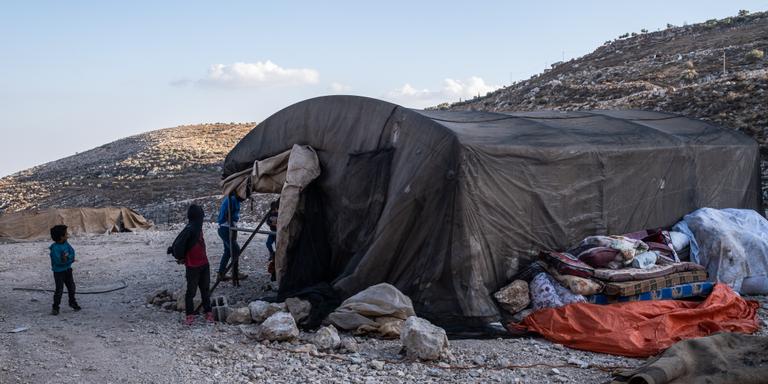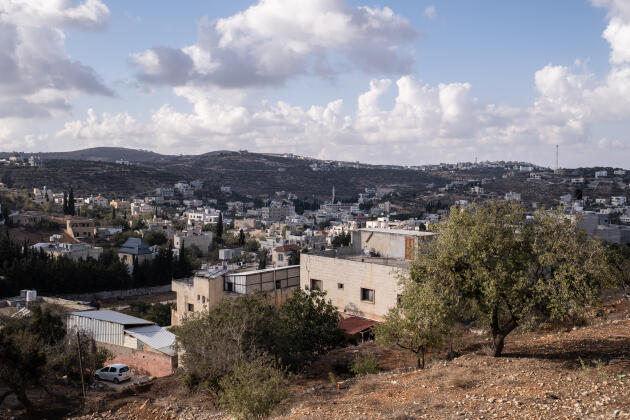


Israel-Hamas war: Settlers speed up eviction of Palestinian Bedouins in West Bank hills amid war
FeatureHundreds of Palestinian Bedouins are being driven off their land in a displacement strategy orchestrated by Israeli settlers since 2017, which has been accelerating discreetly since October 7.
Abed Kaabneh abandoned his home and possessions. He left on foot with only the shirt on his back, a canvas hat, his wife, their children and their goats. The Israeli settlers and soldiers who drove him and his Palestinian neighbors from the village of Wadi al-Siq in the occupied West Bank on October 12 didn't give them time to take anything with them. It was a small, almost invisible forced displacement of a population: 180 Palestinian Bedouins leading 1,700 cattle through the hills, to the first town that would welcome them.
Their fate carries no weight in Israel, which is consumed in mourning after the Hamas attack on October 7. As for the Palestinians, their eyes riveted on Gaza under the bombs, they have little time to pity their unfortunate brothers. "The settlers have taken revenge on us for what Hamas did in the south," said Kaabneh, "and we have relived our grandparents' story." He is referring to the deep-seated trauma of these families: the Nakba ("catastrophe"), during which almost half of Palestinians were driven out or fled their lands, in the war that accompanied the birth of the State of Israel in 1948.

Kaabneh's village is not an isolated case. Since October 7, Israeli settlers, protected and sometimes assisted by the army, have been taking advantage of the current disorder to depopulate the hills of the West Bank. They have almost completely driven out the population from the mountain ridges that plunge into the Jordan Valley to the east of the Allon road, a 30-kilometer stretch of asphalt that winds through this contorted landscape of white limestone and thorn bushes, whose view reaches far towards the mountains of Jordan. The first community was evicted in the summer of 2022. Five others followed, during the summer, then after the Hamas attack.
'A soldier gave us an hour to leave'
The same assaults are being perpetrated, at an unprecedented rate, in the northern Jordan Valley and in the hills south of Hebron: remote, hard-to-reach areas controlled by the Israeli army. Since the start of the war, 545 people from 13 Bedouin herding communities have been forcibly displaced, according to the UN Office for the Coordination of Humanitarian Affairs. On October 19, several Israeli human rights organizations sent a letter to Western diplomats calling on them to help "stop the ethnic cleansing of Palestinian shepherds and farmers in the Jordan Valley."
"The settlers are trying to take advantage of what happened on the outskirts of Gaza. On social media, they're saying, 'We're in the same situation [as the kibbutz residents attacked by Hamas], but we won't let them do it to us. We have to get rid of them [the Bedouins] before they get rid of us,'" said Allegra Pacheco, director of the West Bank Protection Consortium, a group of international NGOs that helps these communities.
You have 67.86% of this article left to read. The rest is for subscribers only.
